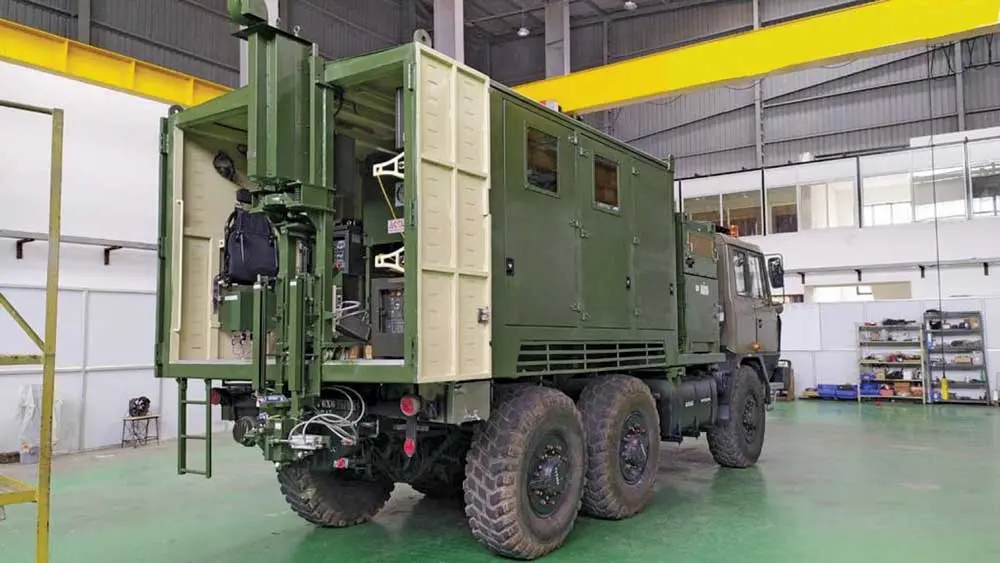Boosting Indigenous Defence Production: Centre Inks Two Crucial Deals Worth Rs 802 Crore
The Indian government has recently taken strides in enhancing indigenous defense production by securing two significant contracts valued at Rs 802 crore. This commendable move underscores the nation’s commitment to bolstering self-reliance in defense manufacturing. The Defense Ministry inked these crucial deals with domestic companies, accentuating the government’s resolve to propel the ‘Make in India’ initiative in the defense sector.
These contracts aim to fortify the defense capabilities of the armed forces by procuring vital equipment and systems. One of the contracts involves the acquisition of anti-drone systems, which have become increasingly essential in modern warfare due to the rising threat of drone attacks. The second contract pertains to the procurement of critical components for electronic warfare systems, a pivotal aspect in ensuring the efficacy of defense mechanisms.

Why this News is Important
Significance of Indigenous Defense Production: Strengthening indigenous defense production is pivotal for a nation’s strategic self-reliance. By reducing dependency on foreign imports, India aims to enhance its defense capabilities and bolster national security.
Boosting ‘Make in India’ Initiative: The agreements exemplify the government’s commitment to the ‘Make in India’ initiative, fostering domestic manufacturing and technological advancement in defense, aligning with the nation’s goal of self-sufficiency.
Historical Context
The push for indigenous defense production has been an ongoing endeavor in India’s defense strategy. Historically, the nation has witnessed a gradual shift from reliance on foreign defense imports to fostering domestic manufacturing. The ‘Make in India’ initiative, launched in 2014, aimed to transform India into a global manufacturing hub, emphasizing indigenous production across sectors, including defense. Over the years, various policies and reforms have been introduced to encourage indigenous defense manufacturing, promoting innovation, technology transfer, and self-reliance.
Key Takeaways from “Boosting Indigenous Defence Production”
| Serial Number | Key Takeaway |
|---|---|
| 1. | Contracts worth Rs 802 crore signed for defense equipment |
| 2. | Emphasis on indigenous defense production |
| 3. | Procurement of anti-drone systems and electronic warfare components |
| 4. | Reinforcing ‘Make in India’ initiative in defense sector |
| 5. | Strengthening armed forces’ capabilities |
Important FAQs for Students from this News
Q: What is the significance of boosting indigenous defense production?
A: Enhancing indigenous defense production reduces dependency on foreign imports, fortifies national security, and promotes self-reliance in defense manufacturing.
Q: How do these contracts contribute to the ‘Make in India’ initiative?
A: These contracts exemplify the government’s commitment to ‘Make in India’ by fostering domestic manufacturing and technological advancement in defense.
Q: Why are anti-drone systems and electronic warfare components crucial?
A: These systems are pivotal in modern warfare for countering evolving security threats, including drone attacks, and ensuring the efficacy of defense mechanisms.
Q: How do these contracts benefit the armed forces?
A: These contracts aim to enhance the armed forces’ capabilities by providing state-of-the-art defense equipment and systems, ensuring readiness for contemporary warfare.
Q: What historical initiatives have contributed to India’s push for indigenous defense production?
A: Initiatives like the ‘Make in India’ campaign, launched in 2014, have aimed to transform India into a global manufacturing hub, emphasizing indigenous production across sectors, including defense.
Some Important Current Affairs Links

















